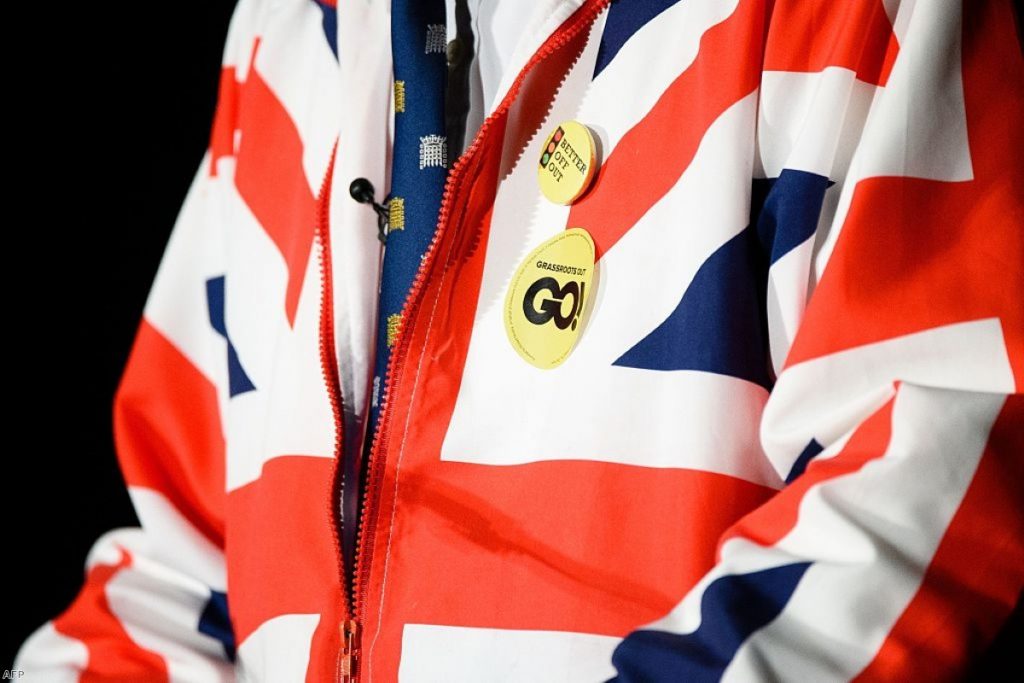The campaign to leave the EU is losing the battle for undecided voters
By Matthew Goodwin
As the European referendum draws closer, a series of surveys, opinion polls and other data suggest that it is the eurosceptics who are currently the underdogs.
Long gone are the days in 2011 and 2012 when the eurosceptics held a commanding lead in the opinion polls. In the intervening years, as the prospect of a referendum has become far more real, their lead has been gradually whittled away.
Purely on the headline numbers, in the 'poll of polls', the race appears to be incredibly close. Once you exclude voters who are undecided then Remain is currently on 51% and Leave is on 49%.


Yet this has not stopped some eurosceptics from claiming that momentum is on their side.
Their confidence has been fuelled by two recent online polls that have put them ahead, one by Panelbase and another by Survation.
Survation put Leave on 42%, Remain on 38% and undecideds on 21% – revealing how the latter could make all the difference.
But eurosceptics would do well to engage in some expectation management. They face some very big challenges. Here are just two that we can see in the data.

Leave needs a clear lead
Since those earlier online polls we've had another by ICM that has put Remain ahead, on 42%, to Leave’s 40% and the Undecided on 17%.
The point is not to dwell on individual polling methods, but to underscore the fact that the Eurosceptics are far from establishing a clear and consistent lead – something that most observers of referendums would tell you that they need in order to be able to absorb any loss of support nearer to polling day as public concerns over risk kick in.
This is why David Cameron would probably be right to hold the vote as soon as possible. But there’s another, more specific challenge.
Undecided voters back Cameron
Let’s look at those undecideds who are likely to make all the difference.
These voters currently look problematic for the Leave camp. Consider some of the findings in the recent Survation poll, for example.
When all voters were asked about their views toward David Cameron’s renegotiation – having been told that it would likely include curbs on benefits for EU migrant workers, an opt-out to the EU principle of ever closer union, more safeguards for non-Eurozone countries and less red tape for business – around half (46%) of the overall sample felt that it looked like a good outcome while only 19% felt it was bad.
However, when it came to the undecideds 57% saw Cameron’s likely deal in a positive light while less than seven per cent thought it was a bad outcome (it is also worth pointing out that more than one in three of the Leave voters thought that such a deal would be a good outcome).
These voters were also most likely to identify Cameron as the one political figure who will influence their vote.
So, unless Cameron really does press the self-destruct button and completely ruins his renegotiation it is likely that most of the undecideds could be won over by his claim that the deal represents a good one for Britain.
And this is not the only evidence to suggest that, in the end, these wavering voters might lean more heavily toward Remain than Leave.
Britain's eurosceptics are currently working hard to try and 'de-risk' the idea of Brexit in the minds of voters, claiming for example that it is risker to remain in the EU than leave.
The status quo of Britain's EU membership, they argue, is not in fact a status quo.
The EU will forever be pushing for further integration and so remaining in an unpredictable organisation that is prone to fairly regular financial or political crises represents a bigger risk than Brexit.
This is an interesting argument and one that could potentially carry currency among some voters. The problem right now, however, is that currently most of the undecideds appear to take the opposite view. For example, recent research by Lord Ashcroft suggests that voters who have yet to make up their minds are more likely to view Brexit, rather than remaining in the EU, as the bigger risk.
The eurosceptics don't have long to change this view, and to establish a lead in the polls, but in my view they will need to do both if they are to deliver on their dream of a Brexit. So far it looks like a tall order.
Professor Matthew Goodwin is a senior fellow in the 'UK in a Changing Europe' programme. Follow him @GoodwinMJ
The opinions in Politics.co.uk's Comment and Analysis section are those of the author and are no reflection of the views of the website and its owners.

